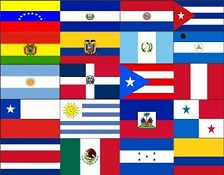El idioma inglés. Una retrospectiva que no conocíamos/The English language. A retrospective that we did not know.


.-.-.-.-.-.-.-.-.-.-.-.-.-.-.-.-.-.-.-.-.-.-.-.-.-.-.-.-.-.-.-.-.-.-.-.-.-.-.-.-.-.-.-.-.-.-.-.-.-.-.-.-.-.-.-.-.-.-.-.-.-.-.-.-.-.-.-.-.-.-.-.-.-.-.-.-.-.-.-.-.-.-.-.-.-.-.-.-.-.-.-.-.-.-.-.--.-.-.-.-.-.-.-.-.-.-.-.-.-.-.-.-.-.-.-.-.-.-.-.-.-.-.-.-.-.-.-.-.-.-.-.-.-.-.-.--.-.-.-.-.-.
Haciendo un arqueo bibliográfico que va desde revistas especializadas en la enseñanza del idioma como el emitido por El Instituto de Superación (1994), editado en México, las ponencia de Isabel Furez que tuvo lugar en el congreso sobre “La enseñanza del inglés en el siglo XXI” (2020) se puede comprender que las raíces del inglés son bastantes extensas y que estas se remontan al año 450 de nuestra Era. Los Anglos y los Sajones procedentes del Mar del Norte habiendo conquistado a los celtas ubicados en la isla que hoy se conoce como Gran Bretaña por medio de luchas que duraron muchos años, los expulsaron hacia las regiones escocesas quedándose ellos con el territorio.
Los anglos al ser los más numerosos impusieron su idioma el cuan conocemos hoy como anglosajón o ingles antiguo (old English), este tenía sus variantes según su ubicación geográfica donde se encontraban: Los del norte llamado Northumberland, el del interior fue llamado Merciano, estos se unieron bajo el nombre de Anglian y el del Sur llamado Sajòn predominó más que los anteriores y su escritura rúnica con el tiempo fue reemplazado por el romano.
Con la llegada de los Vikingos que invadieron parte de las islas y se mezclaron con los Anglosajones influenciando el idioma agregando nueva palabras. Ya para el año 1066 las islas Británicas fueron invadidas nuevamente por los Normandos, mezclando su idioma con el idioma inglés.
El inglés medio (Middle English) surge gracias a un evento muy importante que aconteció sobre la Costa Sur de Inglaterra en el condado de Sussex, específicamente en un lugar llamado Hasting Guillermo Duque de Normandìa ( Guillermo el Conquistador) al derrotar al rey Anglosajón Harol y coronarse rey de Inglaterra trajo como consecuencia una lucha entre el idioma de los vencedores y vencidos ya que la clase gobernante impuso al Idioma francés como un idioma comercial y así fue por muchos años transformando con ello el idioma ingles al aportar nuevas palabras.
Ya para le época del renacimiento se anexan nuevas palabra con la apertura tecnológica y el despertar de la conciencia social.
Aproximadamente hacia 1476, en Westminster el impresor Willian Caxton publica un libro titulado “Sentencias y dichos filosóficos” lo que resultó ser una serie de traducciones de los clásicos contribuyendo con ello a la expansión del idioma ingles consolidando su dominio bajo el reinado de Enrique VIII se convierte en un idioma nacional. Esta serie de acontecimientos marco el inicio de lo que se llamó Ingles Moderno (Modern English).
Con la conquista del nuevo continente, los colonos al estar aislados inventaron nuevas palabras unidas a las lenguas de los pueblos originarios es por ello que el Ingles Norteamericano tiene un compendio de palabras que derivan de del alemán, holandés, francés, irlandés, español e italiano. Otro fenómeno se agrega a la variopinta pronunciación que motivado a los intercambios comerciales de los mercaderes y los viajes de los marineros a otras latitudes aportando sonidos de otras lenguas a la pronunciación variándola dependiendo del lugar o región.
Es así que con el tiempo el idioma comienza a utilizarse para comunicarse, para la aeronáutica y en el área marítima así como en las ciencias.
El inglés es un compendio de varios idiomas lo que de alguna forma ha impedido que su pronunciación sea igual a su escritura, así como la construcción de las oraciones siguen una norma diferente en algunos cosas.
By @hojaraskita
.-.-.-.-.-.-.-.-.-.-.-.-.-.-.-.-.-.-.-.-.-.-.-.-.-.-.-.-.-.-.-.-.-.-.-.-.-.-.-.-.-.-.-.-.-.-.-.-.-.-.-.-.-.-.-.-.-.-.-.-.-.-.-.-.-.-.-.-.-.-.-.-.-.-.-.-.-.-.-.-.-.-.-.-.-.-.-.-.-.-.-.-.-.-.-.--.-.-.-.-.-.-.-.-.-.-.-.-.-.-.-.-.-.-.-.-.-.-.-.-.-.-.-.-.-.-.-.-.-.-.-.-.-.-.-.--.-.-.-.-.-.


.-.-.-.-.-.-.-.-.-.-.-.-.-.-.-.-.-.-.-.-.-.-.-.-.-.-.-.-.-.-.-.-.-.-.-.-.-.-.-.-.-.-.-.-.-.-.-.-.-.-.-.-.-.-.-.-.-.-.-.-.-.-.-.-.-.-.-.-.-.-.-.-.-.-.-.-.-.-.-.-.-.-.-.-.-.-.-.-.-.-.-.-.-.-.-.--.-.-.-.-.-.-.-.-.-.-.-.-.-.-.-.-.-.-.-.-.-.-.-.-.-.-.-.-.-.-.-.-.-.-.-.-.-.-.-.--.-.-.-.-.-.
A bibliographic survey of the literature ranging from magazines specialized in the teaching of the language, such as the one issued by the Instituto de Superación (1994), published in Mexico, to the presentation by Isabel Furez at the conference on "Teaching English in the 21st Century" (2020) shows that the roots of English are quite extensive and that they date back to the year 450 A.D. The Anglos and the Saxons were the first to use the language in their own language. The Angles and Saxons from the North Sea, having conquered the Celts located on the island now known as Great Britain through struggles that lasted for many years, expelled them to the Scottish regions and kept the territory for themselves.
The Anglos being the most numerous imposed their language which we know today as Anglo-Saxon or Old English, this had its variants according to their geographical location where they were located: Those of the north called Northumberland, the interior was called Mercian, these were united under the name of Anglian and the South called Saxon predominated more than the previous ones and its runic writing was eventually replaced by Roman.
With the arrival of the Vikings who invaded part of the islands and mixed with the Anglo-Saxons influencing the language by adding new words. By the year 1066 the British Isles were invaded again by the Normans, mixing their language with the English language.
Middle English arose thanks to a very important event that took place on the South Coast of England in the county of Sussex, specifically in a place called Hasting, William Duke of Normandy (William the Conqueror) defeating the Anglo-Saxon King Harol and crowning himself King of England brought as a consequence a struggle between the language of the victors and the vanquished, since the ruling class imposed the French language as a commercial language and so it was for many years, transforming the English language by adding new words.
By the time of the Renaissance, new words were added with the technological opening and the awakening of social conscience.
Approximately around 1476, in Westminster, the printer William Caxton published a book entitled "Sentences and philosophical sayings" which turned out to be a series of translations of the classics thus contributing to the expansion of the English language consolidating its dominance under the reign of Henry VIII becomes a national language. This series of events marked the beginning of what was called Modern English.
With the conquest of the new continent, the colonists, being isolated, invented new words linked to the languages of the native peoples, which is why North American English has a compendium of words derived from German, Dutch, French, Irish, Spanish and Italian. Another phenomenon is added to the motley pronunciation that was motivated by the commercial exchanges of merchants and the travels of sailors to other latitudes, contributing sounds from other languages to the pronunciation, varying it depending on the place or region.
Thus, with time, the language began to be used for communication, aeronautics and in the maritime area, as well as in the sciences.
English is a compendium of several languages, which in some ways has prevented its pronunciation from being the same as its writing, as well as the construction of sentences following a different standard in some things.
By @hojaraskita
Si9empre hay que saber la raíz de las cosas,la historia nos permite entender los procesos.
Hola @hojaraskita muy buena exposición acerca de las raíces del idioma inglés y su florecimiento ante el mundo. Interesante tú investigación.
Saludos
Estas recibiendo un voto por parte del proyecto "Sound Music" (@music1sound) y este post fue seleccionado para el reporte de curación diaria. Contáctenos para saber más del proyecto a nuestro servidor de Discord. Si desea delegar HP al proyecto: Delegue 5 HP - Delegue 10 HP - Delegue 20 HP - Delegue 30 HP - Delegue 50 HP - Delegue 100 HP.